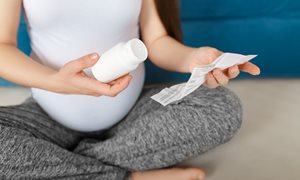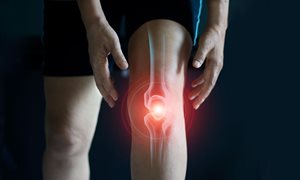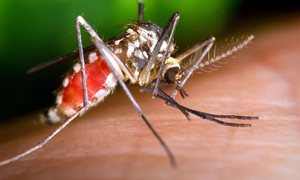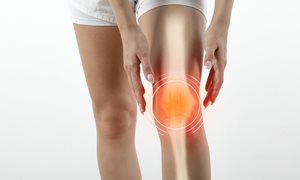
Three quarters of women in the Netherlands use some form of medication during pregnancy, but little is known about the appropriate dosages. Research by the Radboudumc, MUMC+ and Lareb Mothers of Tomorrow should change this.
A pregnant woman's body changes to support the growth of her unborn child. These changes also affect the processing of drugs in her body. This can lead to too high or too low a dosage of a drug, possibly with adverse effects on the health of the pregnant woman or her child. Too high a dose creates a risk of poisoning. Too low a dose may make a therapy less effective. However, this aspect is rarely investigated because pregnant women often cannot participate in clinical trials. As a result, very little knowledge is available about how much drug reaches the baby in such cases.
Virtual pregnant women
That is why the Department of Pharmacology and Toxicology at Radboudumc, together with Maastricht UMC+ and Lareb Mothers of Tomorrow, is starting a study on appropriate drug dosages in pregnant women and their babies. The research Model Appropriate Dosages for All Mothers (MADAM) is supported by the Bill & Melinda Gates Foundation. Led by Saskia de Wildt, Rick Greupink and Liesbeth Scheepers (MUMC+), predictive models or 'virtual pregnant women' will be used to determine whether it is necessary to adjust dosages during pregnancy. In addition, they will look in placentas, collected just after delivery, at the extent to which various medications used by a pregnant woman actually reach her child.
Research-based advice
Ultimately, this research should lead to a pregnancy formulary: an international information source in which health care providers can look up specially tested dosage recommendations for pregnant women. An important example for this new source is the Kinderformularium, a website on which doctors and pharmacists in the Netherlands and other European countries can find suitable dosages for children of different ages. Furthermore, it will be mapped out how health care providers and (future) mothers deal with dosages during pregnancy based on this study,
-
Want to know more about these subjects? Click on the buttons below for more news.
Related news items

Meniscus prosthesis Atro Medical receives 2.5 million EU grant
10 June 2022 The European Commission is providing a 2.5 million euro grant to ATRO Medical, spin-off of The Radboudumc and DSM, for the accelerated development of their artificial meniscus. go to page
More accurate surgery with the Anatomy Projector
30 May 2022The Anatomy Projector, developed at the Radboudumc, allows surgeons to operate much more accurately with projected augmented reality.
go to page
Field research on malaria vaccine offers unexpected surprise
23 May 2022Field research on the effectiveness of a malaria vaccine, came up with unexpected results for an international group of researchers including Benjamin Mordmüller of Radboudumc. The vaccine evokes a broader response against malaria proteins than there are in the vaccine.
go to page
Rubicon grants awarded to three RIMLS researchers
19 April 2022Three researchers have received Rubicon funding from NWO/ZonMw. This will enable Elke Muntjewerff, Laura de Vries and Laurens van de Wiel to do research at a foreign research institute for the next two years.
go to page
NIH grant for follow-up research on tuberculous meningitis
10 February 2022Met subsidie van het Amerikaanse NIH gaat With a grant from the U.S. NIH, Reinout van Crevel will continue to unravel the disease process of tuberculous meningitis.
go to page